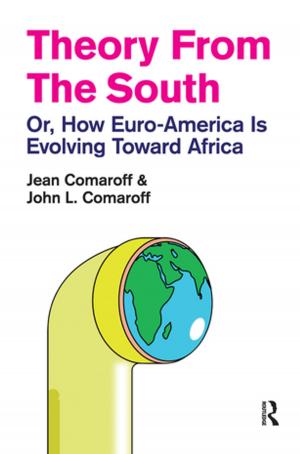Faces Of Feminism
An Activist's Reflections On The Women's Movement
Nonfiction, Social & Cultural Studies, Social Science, Gender Studies| Author: | Sheila Tobias | ISBN: | 9780429980220 |
| Publisher: | Taylor and Francis | Publication: | February 26, 2018 |
| Imprint: | Routledge | Language: | English |
| Author: | Sheila Tobias |
| ISBN: | 9780429980220 |
| Publisher: | Taylor and Francis |
| Publication: | February 26, 2018 |
| Imprint: | Routledge |
| Language: | English |
As one of the main players in the second wave of feminism, Sheila Tobias returns to Kate Millets central tenet, sexual politics, and argues that it can still unite progressive men and women around a common set of goals. Providing a map of a complex terrain, Tobias details generations of issues, each more radical and therefore harder to tackle than the ones before. She sets the story in two contexts: feminisms own evolving strategies and Americas political landscape. Even though her passion for feminism remains, she is not unwilling to critique the sisterhood and herself for failing to see, for example, that not every woman would be a feminist nor every man an enemy. In the heady first years, feminists forgot that deeper even than gender is the liberal/conservative divide in American politics. }As one of the main players in the second wave of feminism, Sheila Tobias returns to Kate Millets central tenet, sexual politics, and argues that it can still unite progressive men and women around a common set of goals. Providing a map of a complex terrain, Tobias details generations of issues, each more radical and therefore harder to tackle than the ones before. She sets the story in two contexts: feminisms own evolving strategies and Americas political landscape. Even though her passion for feminism remains, she is not unwilling to critique the sisterhood and herself for failing to see, for example, that not every woman would be a feminist nor every man an enemy. In the heady first years, feminists forgot that deeper even than gender is the liberal/conservative divide in American politics.From the origins of the movement through feminist theory and new scholarship on women, Tobias traces the political history of the second wave and its comeuppance at the hands of Phyllis Schaflys StopERAcoincidental with the nations careering toward the Right. Somehow, feminism survived the 1980s, but by having to fight brush fires throughout the Reagan-Bush presidencies, the movement lost some of its breadth and much of its taste for the mainstream. Because of her activism and her feeling for the period she chronicles, Tobias is at once inside and outside the issues of sexual preference, pornography, the draft, the Mommy Track, comparable worth, affirmative action, reproductive rights, and the challenges of equality versus difference. }
As one of the main players in the second wave of feminism, Sheila Tobias returns to Kate Millets central tenet, sexual politics, and argues that it can still unite progressive men and women around a common set of goals. Providing a map of a complex terrain, Tobias details generations of issues, each more radical and therefore harder to tackle than the ones before. She sets the story in two contexts: feminisms own evolving strategies and Americas political landscape. Even though her passion for feminism remains, she is not unwilling to critique the sisterhood and herself for failing to see, for example, that not every woman would be a feminist nor every man an enemy. In the heady first years, feminists forgot that deeper even than gender is the liberal/conservative divide in American politics. }As one of the main players in the second wave of feminism, Sheila Tobias returns to Kate Millets central tenet, sexual politics, and argues that it can still unite progressive men and women around a common set of goals. Providing a map of a complex terrain, Tobias details generations of issues, each more radical and therefore harder to tackle than the ones before. She sets the story in two contexts: feminisms own evolving strategies and Americas political landscape. Even though her passion for feminism remains, she is not unwilling to critique the sisterhood and herself for failing to see, for example, that not every woman would be a feminist nor every man an enemy. In the heady first years, feminists forgot that deeper even than gender is the liberal/conservative divide in American politics.From the origins of the movement through feminist theory and new scholarship on women, Tobias traces the political history of the second wave and its comeuppance at the hands of Phyllis Schaflys StopERAcoincidental with the nations careering toward the Right. Somehow, feminism survived the 1980s, but by having to fight brush fires throughout the Reagan-Bush presidencies, the movement lost some of its breadth and much of its taste for the mainstream. Because of her activism and her feeling for the period she chronicles, Tobias is at once inside and outside the issues of sexual preference, pornography, the draft, the Mommy Track, comparable worth, affirmative action, reproductive rights, and the challenges of equality versus difference. }















